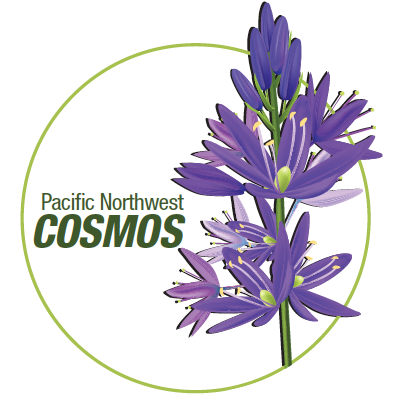Indigenous Mentoring Program
Overview
The Indigenous Mentoring Program (IMP) is the result of a research study funded by the NSF AGEP-T1 that aimed to investigate the factors that contribute to the effective mentoring
of American Indian/Alaska Native (AI/AN) graduate students in STEM disciplines. This
collaborative project involving researchers at Montana State University, University
of Montana, and Salish Kootenai College produced a model to train and support STEM
faculty at their institutions through a sequence of modules with information related
to mentoring, student resources, student socialization, cultural humility, and culturally
attuned practices for research conducted by American Indian and Alaska Native (AI/AN)
students.
funded by the NSF AGEP-T1 that aimed to investigate the factors that contribute to the effective mentoring
of American Indian/Alaska Native (AI/AN) graduate students in STEM disciplines. This
collaborative project involving researchers at Montana State University, University
of Montana, and Salish Kootenai College produced a model to train and support STEM
faculty at their institutions through a sequence of modules with information related
to mentoring, student resources, student socialization, cultural humility, and culturally
attuned practices for research conducted by American Indian and Alaska Native (AI/AN)
students.
Learn about the research behind the IMP and get an introduction to the 9 modules (22 min video) with Barbara Komlos and Sweeney Windchief!
Objectives
- Gain insights into effectively mentoring American Indian students, especially in STEM fields
- Learn about Indigenous research methodologies and explore how they might connect with your own research
- Explore ways to move from cultural competence toward cultural humility
- Maintain equity in teaching by facilitating and supporting the success and advancement of students from a diverse array of backgrounds
Modules
Module 1: Indigenous Mentoring Models examines traditional academic mentoring, and introduces specific examples of indigenous mentoring systems, and knowledge helpful in working with AI/ANs.
Module 2: Indigenous Research Methodologies introduces Indigenous Research Methodologies, how research can contribute to Indigenous communities, and explores the relationship between indigenous students’ motives/work in graduate school and contributing to tribal communities.
Module 3: Indigenous Student Services provides an overview of campus and community-specific services for AI/AN students, as well as cultural awareness workshops for faculty, administrators and staff.
Module 4: Visiting Students’ Home Communities provides mentors with a greater understanding of AI/AN lived realities, ties to their communities, and how one would go about visiting a tribal community.
Module 5: Interface with Prospective Students engages mentors in dialogue about campus-specific recruiting practices, explores factors that influence students’ choice of a program, and shares external venues for recruitment.
Module 6: Informal Gatherings for Mentors and Mentees provides insight on campus and community-specific venues/activities for building and strengthening relationships with mentee.
Module 7: Training on Cultural Humility explores the difference between cultural competency and cultural humility.
Module 8: Presentation of Research and Services to Tribal Community Leaders introduces decolonizing research and shares best practices in presenting research results to indigenous communities.
Module 9: Resources on Mentoring Indigenous Students provides access to literature on mentoring AI/AN students.
Research Articles
Windchief S, Brown B. Conceptualizing a mentoring program for American Indian/Alaska Native students in the STEM fields: A review of the literature. Mentoring and Tutoring: Partnership in Learning, 2017; 25:3, 329-345, https://doi.org/10.1080/13611267.2017.1364815
Windchief S, Arouca R, Brown B. Developing an Indigenous Mentoring Program to train faculty mentoring American Indians and Alaska Native graduate students in STEM. Mentoring and Tutoring: Partnership in Learning, 2018; 26:5, 503-523, https://doi.org/10.1080/13611267.2018.1561001
Brown, B, Komlos, B.Z. Designing and implementing an Indigenous Mentoring Program for faculty who mentor AI/AN graduate students in STEM: Process, outcomes and lessons learned. Issues and Trends for Higher Education, 2019; 187, 67-78, https://doi.org/10.1002/he.20337
Brown, B., Windchief, S., Komlos, B., Arouca, R. (2020). Assessing the impact of an Indigenous Mentoring Program on faculty to support American Indian/Alaska Native graduate students in STEM. Journal of Faculty Development; in press.
Adapting the IMP for your own context
For institutions looking to adapt the IMP to their own contexts and populations, please review the Facilitator Guide:
Arouca, R. (Ed.). (2018). Indigenous Mentoring Program Facilitator Guide, DOI:
http://doi.org/10.5281/zenodo.1473888
 [1]
[1] This is an AGEP - T: Alliance for Graduate Education and the Professoriate – Transformation
under the Directorate for Education and Human Resources (EHR), Division of Human Resource
Development (HRD). Grant #1431773 Montana State University and #1432694 University
of Montana.
This is an AGEP - T: Alliance for Graduate Education and the Professoriate – Transformation
under the Directorate for Education and Human Resources (EHR), Division of Human Resource
Development (HRD). Grant #1431773 Montana State University and #1432694 University
of Montana.
